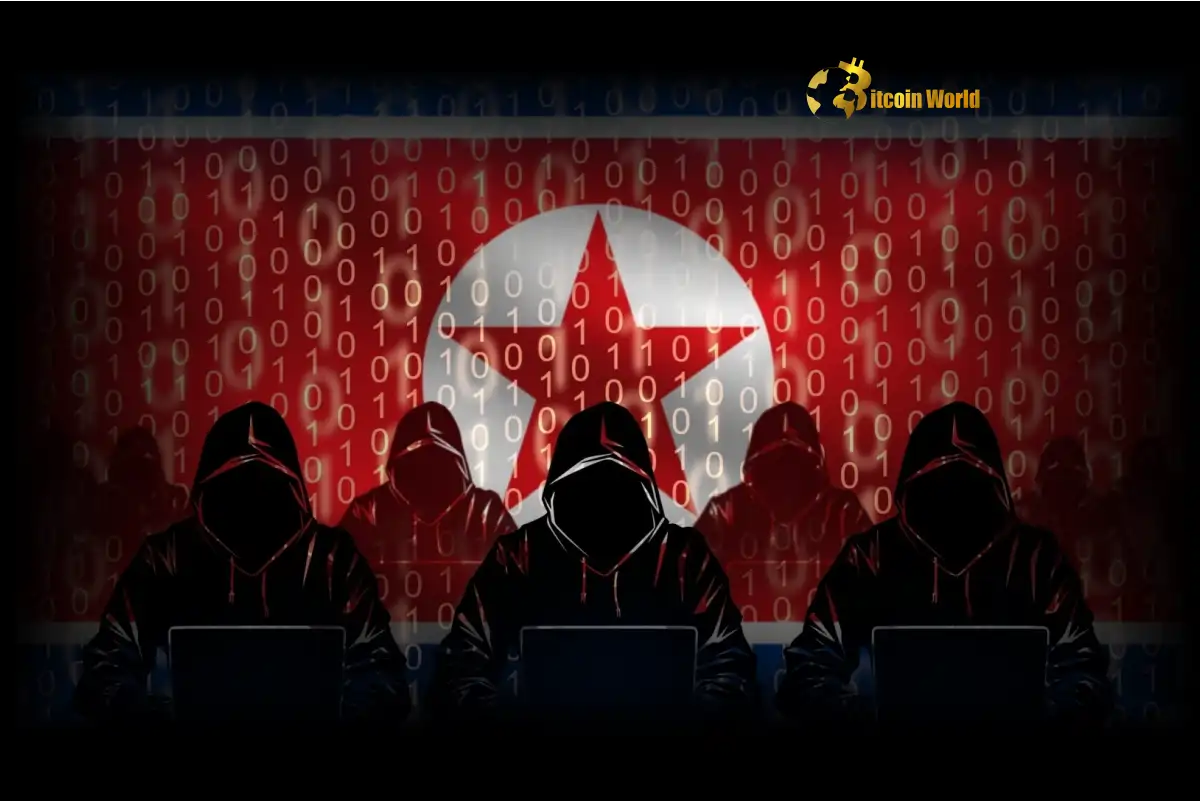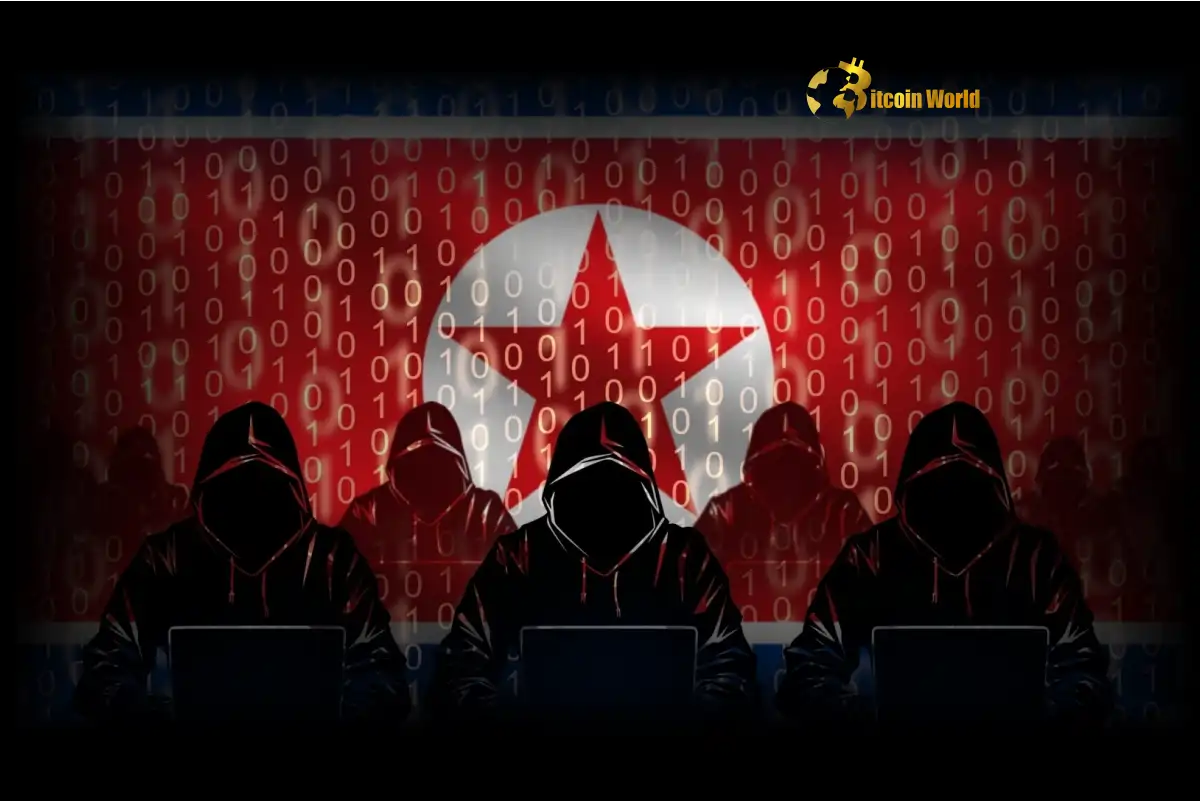Attention, crypto community and global citizens! The world’s leading economies are zeroing in on a critical threat within the digital asset space. The upcoming G7 Summit, scheduled for mid-June in Alberta, Canada, is set to place a significant spotlight on a pressing issue: North Korea’s crypto hacking activities. This isn’t just about digital assets; it’s about global security and the integrity of the international financial system.
Why is the G7 Summit Focusing on Cryptocurrency Theft?
The Group of Seven (G7) is an intergovernmental political and economic forum consisting of Canada, France, Germany, Italy, Japan, the United Kingdom, and the United States. These nations represent a significant portion of global wealth and influence. When the G7 convenes, their agenda reflects the most critical challenges facing the international community. The inclusion of cryptocurrency theft by rogue states like North Korea on this high-level agenda underscores the severity and scale of the problem.
North Korea has increasingly relied on sophisticated cyberattacks, particularly targeting cryptocurrency platforms and exchanges, as a primary means of generating revenue. This revenue is crucial for funding its prohibited weapons programs, including nuclear and ballistic missile development, bypassing international sanctions. The sheer volume of stolen funds has made Pyongyang a major player in the world of state-sponsored cybercrime.
Bloomberg recently reported that this topic is expected to be a major point of discussion. The G7 leaders recognize that tackling this issue requires a united front. Isolated efforts by individual nations are simply not enough to counter a threat that operates across borders in the inherently global nature of the internet and cryptocurrency networks.
The Scale of North Korea’s Crypto Hacking Operations
Estimates from various cybersecurity firms and international bodies like the United Nations paint a concerning picture of the scale of North Korea Crypto Hacking. Reports suggest that the regime has stolen billions of dollars worth of cryptocurrency over the past few years. These funds are laundered and used to finance illicit activities, posing a direct threat to international peace and security.
Known North Korean hacking groups, such as the infamous Lazarus Group, are notorious for their elaborate schemes. These attacks often involve phishing campaigns, exploiting vulnerabilities in exchange security, or developing sophisticated malware to compromise wallets and platforms. The methods are constantly evolving, making detection and prevention a continuous challenge.
The funds acquired through cryptocurrency theft provide a vital lifeline for the North Korean regime, allowing it to circumvent traditional financial sanctions that aim to cut off its access to foreign currency. This makes the G7’s focus on this issue not just about financial crime, but about national security and non-proliferation.
Tackling Illicit Financing Through International Cooperation
A key outcome expected from the G7 Summit discussion is a commitment to strengthen international cooperation. Why is cooperation so vital in combating illicit financing via crypto? Here are a few reasons:
- Cross-Border Nature: Cryptocurrency transactions and the platforms handling them operate globally. A hacker in one country can steal from a platform in another, and the funds can be moved through exchanges located worldwide.
- Information Sharing: Effective tracking and recovery of stolen assets require rapid and seamless information sharing between law enforcement agencies, financial intelligence units, and cybersecurity experts across different nations.
- Regulatory Alignment: Harmonizing regulations related to cryptocurrency, particularly Know Your Customer (KYC) and Anti-Money Laundering (AML) standards, makes it harder for criminals to exploit loopholes in different jurisdictions.
- Technical Expertise: Sharing technical knowledge about hacking techniques, blockchain analysis tools, and attribution methods enhances the collective ability to identify perpetrators and trace funds.
- Sanctions Enforcement: Coordinated international sanctions targeting individuals, entities, and wallets associated with North Korean hacking groups are far more effective than unilateral actions.
The G7 leaders are expected to discuss concrete steps to enhance this cooperation. This could involve establishing new frameworks for data exchange, conducting joint investigations, and working more closely with the private sector, including cryptocurrency exchanges, blockchain analytics firms, and cybersecurity companies.
Challenges in Combating Crypto Theft and Illicit Financing
While the commitment from the G7 is a positive step, significant challenges remain in effectively combating illicit financing conducted through cryptocurrencies. Some of these challenges include:
| Challenge | Description | ||
|---|---|---|---|
| Anonymity/Pseudonymity | While not fully anonymous, the pseudonymous nature of many cryptocurrencies makes tracing ownership difficult without cooperation from service providers or sophisticated blockchain analysis. | ||
| Jurisdictional Issues | Prosecuting cybercriminals operating from hostile states like North Korea is extremely difficult due to lack of extradition treaties and state sovereignty issues. | ||
| Technical Sophistication | Hackers constantly develop new techniques, exploit zero-day vulnerabilities, and use mixers or tumblers to obfuscate transaction trails. | Varying Global Regulations | Inconsistent or absent cryptocurrency regulations in some countries create havens for illicit activity. |
| Resource Allocation | Tracking complex crypto crime requires significant resources, expertise, and specialized tools, which may not be uniformly available across all nations. |
Addressing these challenges requires a multi-pronged approach that combines technological solutions, legal frameworks, and robust international cooperation. The G7 discussion is expected to explore how member states can pool resources and expertise to overcome these hurdles.
What Actions Might the G7 Consider?
Based on the goal of strengthening international cooperation to block illicit financing, the G7 might consider several actions:
- Enhanced Intelligence Sharing: Formal agreements for faster and more comprehensive sharing of threat intelligence related to North Korean cyber activities and cryptocurrency movements.
- Coordinated Sanctions: Implementing synchronized sanctions against individuals, entities, and cryptocurrency addresses identified as being involved in North Korean hacking and money laundering.
- Capacity Building: Assisting countries with less developed capabilities in enhancing their cybersecurity defenses and blockchain analysis skills to better identify and disrupt illicit flows.
- Engagement with the Crypto Industry: Working with exchanges, wallet providers, and blockchain analytics companies to improve security measures, implement stricter KYC/AML controls, and facilitate the tracing and seizure of illicit funds.
- Public-Private Partnerships: Fostering collaboration between government agencies and private cybersecurity firms to share threat information and develop countermeasures against sophisticated attacks targeting cryptocurrency theft.
- Research and Development: Investing in research for advanced blockchain analysis techniques and tools that can help de-anonymize transactions and track funds more effectively.
These potential actions highlight the comprehensive strategy needed to counter the complex threat posed by North Korea’s crypto hacking operations. The focus is not just on punishment after the fact, but on building resilience and disrupting the illicit financial flows at various stages.
The Impact on the Broader Crypto Ecosystem
While the G7’s focus is specifically on state-sponsored malicious activity, discussions around illicit financing naturally bring increased scrutiny to the broader cryptocurrency ecosystem. This attention from major global powers like the G7 signals a continued trend towards greater regulation and oversight of the crypto space.
Responsible actors within the crypto industry, including compliant exchanges and financial institutions dealing with digital assets, are already implementing robust KYC and AML procedures. The G7’s push for strengthened international cooperation could lead to more standardized global regulations, which, while potentially increasing compliance burdens, could also enhance the legitimacy and security of the ecosystem in the long run. By effectively tackling cryptocurrency theft and its use in illicit financing, the G7 can help differentiate legitimate crypto activities from criminal ones, potentially fostering greater trust and adoption.
Conclusion: A United Front Against Digital Crime
The inclusion of North Korea’s crypto hacking and illicit financing on the agenda for the upcoming G7 Summit is a clear indication of the global significance of this issue. It underscores how digital assets, while offering innovation, can also be exploited by malicious actors to circumvent traditional financial controls and fund dangerous activities. The expected outcome of strengthening international cooperation is a vital step in building a more secure and resilient global financial system in the digital age.
Combating cryptocurrency theft on this scale requires a concerted, coordinated effort from the world’s leading nations. The G7’s focus provides hope that concrete strategies and enhanced collaboration will emerge to counter this significant threat, ultimately protecting both national security and the integrity of the global crypto market.
To learn more about the latest crypto market trends, explore our article on key developments shaping Bitcoin and Ethereum price action.






